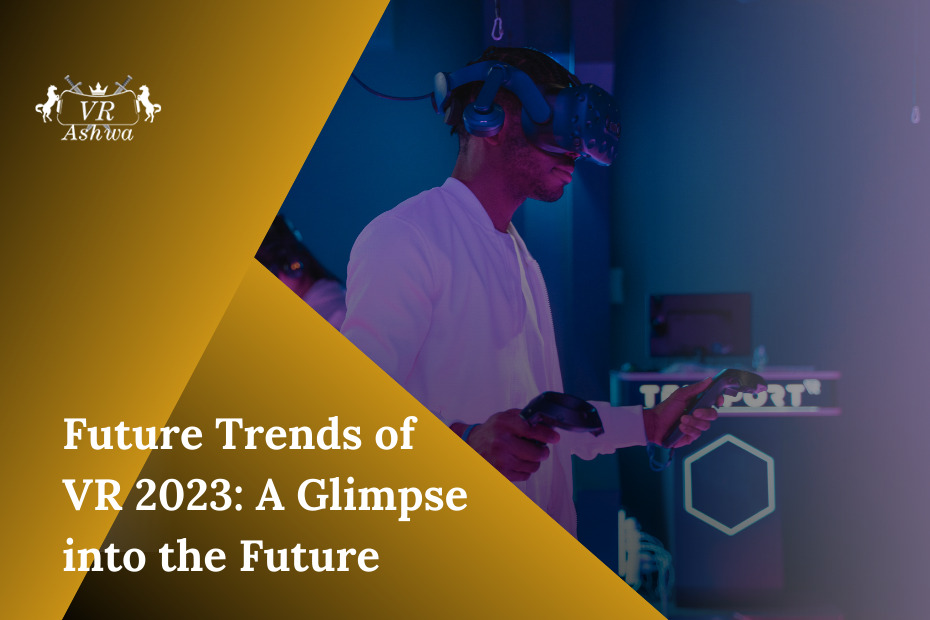Step into a world where imagination knows no bounds and reality and fantasy intertwine seamlessly. Virtual reality (VR) has emerged as a groundbreaking technology, propelling us into realms previously unexplored. With each passing day, its potential grows, captivating individuals and businesses alike. As we dive into the future of VR, let’s embark on a journey of discovery where immersive experiences and limitless possibilities await.
The Rise of Enterprise VR Apps:
In the enterprise realm, VR has become an indispensable tool for training, collaboration, and simulation. Picture a scenario where complex tasks are mastered with ease and precision. Companies such as Boeing and Shell have harnessed the power of VR to equip their employees with the skills needed to excel in challenging environments. The global market for enterprise VR is projected to reach a staggering $12.1 billion by 2025, reflecting the increasing adoption of VR across industries.
Greater User Adoption:
As VR headsets become more affordable, the doors to this captivating technology are swinging open for a wider audience. The statistics speak for themselves: by 2024, an estimated 171 million individuals worldwide will embrace VR’s immersive experiences. Just imagine the thrill of exploring fantastical worlds, engaging in thrilling adventures, or participating in educational simulations—all at the touch of a button. With the Oculus Quest 2 now available for only $299 and a vast array of VR games and experiences at your fingertips, the time to dive into the immersive realm of VR has never been more opportune.
Significant Improvements in Hardware:
The advancements in VR hardware continue to redefine the boundaries of possibility. From enhanced resolutions to seamless tracking and unparalleled performance, the latest VR headsets bring reality to life in unimaginable ways. Take, for instance, the Oculus Quest 2—a technological marvel with a higher resolution display, a more powerful processor, and an extended battery life. These improvements transport users into vivid and immersive worlds, blurring the line between the virtual and physical realms. Surgeons are even utilizing VR headsets in real-time scenarios, allowing for thorough training and the advancement of medical expertise.
Development is Easier Than Ever:
VR content creation is no longer limited to experts in the field. The democratization of VR development tools and resources has empowered enthusiasts and creators to craft their own immersive experiences. Platforms such as Unity and Unreal Engine, equipped with VR support, paved the way for individuals to embark on virtual creations. From interactive games to awe-inspiring environments, the possibilities are endless. As VR content diversifies, accessibility soars, bringing us closer to a world where anyone can be a virtual reality pioneer.
More VR-Tailored Services:
Prepare to witness a surge in services specifically tailored to the VR experience. Imagine joining a live concert from the comfort of your own home or engaging in real-time conversations with friends across the globe within a virtual realm. Services like NextVR’s live and on-demand VR content delivery, VRChat’s immersive social networking platform, and VRMe’s revolutionary VR-based e-commerce are transforming the landscape of entertainment, connectivity, and shopping. These tailored experiences bridge the gap between imagination and reality, ensuring VR’s place at the forefront of technology’s evolution.
The Exciting Potential of VR:
As we gaze into the future, the potential of VR shines brighter than ever. VR is not confined to the realms of gaming and entertainment alone; its transformative capabilities extend into education, healthcare, and numerous other industries. Imagine students delving into immersive history lessons, witnessing events firsthand, or healthcare providers utilizing VR to offer therapy and treatment to patients, transcending physical limitations. The future of VR promises a revolution in how we learn, heal, and experience the world around us.
Conclusion:
Every day, VR inches closer to becoming an integral part of our lives. The rise of enterprise VR apps, increasing user adoption, improvements in hardware, easier content development, and the emergence of VR-tailored services highlight this technology’s tremendous growth and potential. The immersive experiences and limitless possibilities offered by VR paint a vivid picture of a future where boundaries are transcended, imagination is unleashed, and new dimensions of reality are discovered. The journey has only just begun, and the virtual reality world awaits us all.

